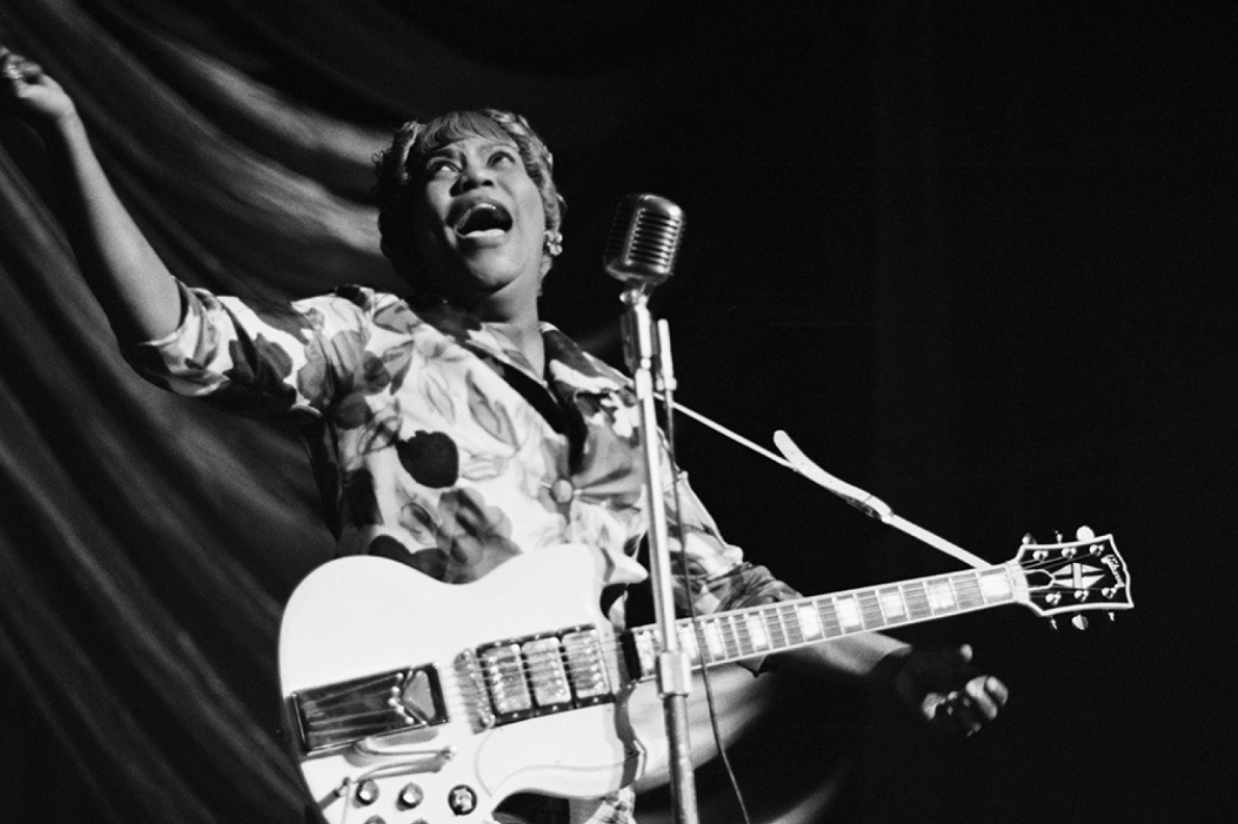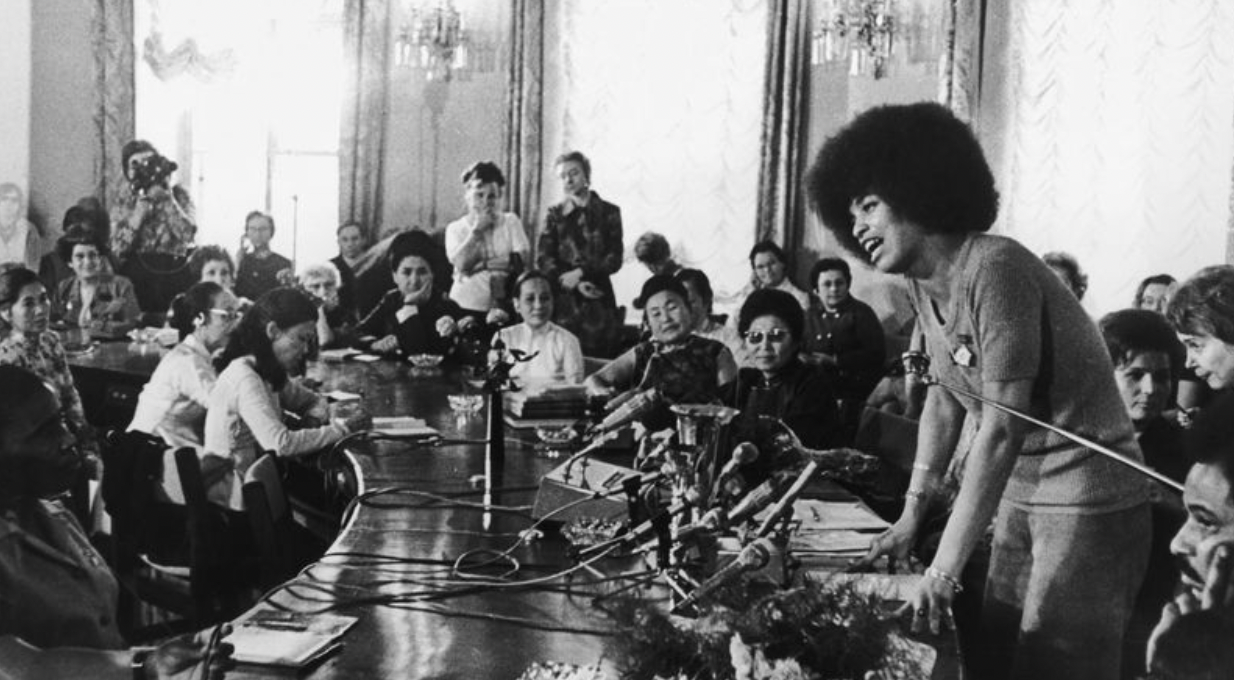10 Influential Black Women in History
Be inspired by an exceptional group of women who made a special mark on their communities and the world.
Sister Rosetta Tharpe
(Tony Evans/Getty Images)
Sister Rosetta Tharpe is one of the most influential artists of the 20th century. Her flamboyance, skill, and showmanship on the recently adopted electric guitar played a vital role in the conception of Rock & Roll as a genre of music.
Angela Davis
(Express/Archive Photos via Getty Images)
Angela Davis was a major activist in the late 1960s and early '70s. She was affiliated with the Black Panthers as a young woman, and ran as the Communist vice-presidential candidate in 1980 and 1984. She was arrested, tried, and acquitted for her role in a Black Panther courtroom shootout. She went on to have a notable academic career at institutions including Pomona College, Rutgers, and Vassar, and has remained politically active.
Billie Holiday
(Michael Ochs Archives/Getty Images)
Billie Holiday was one of the greatest jazz singers of the 20th century. Holiday started working with Artie Shaw and his orchestra in 1938 and became one of the first female African-American vocalists to work with a white orchestra. Her singing reflected her turbulent life, which was blemished with spells of substance abuse as demonstrated in the American biographical Drama, “The United States vs Billie Holiday.” Her autobiography was made into the 1972 film "Lady Sings the Blues" starring Diana Ross.
Fannie Barrier Williams
(Public Domain/Library of Congress)
Fannie Barrier Williams was an influential educator and activist who was a stout advocate for freed slaves in the South. She spoke at the World's Columbian Exposition in Chicago in 1893, articulating her concern over the lack of Blacks on the Board of Control for that cultural event. She helped found organizations such as the National League of Colored Women, the National Association of Colored Women, and the National Association for the Advancement of Colored People. She also supported women's suffrage and in 1907, was the only African-American chosen to eulogize Susan B. Anthony at the 1907 National American Women Suffrage Association convention.
Shirley Chisholm
(Pictorial Parade/Getty Images)
Known as "Fighting Shirley," Shirley Chisholm was one of the first African-American women elected to Congress, serving the first of seven terms beginning in 1969. She was also the first woman and first African-American to seek the nomination for president from one of the two major political parties — the Democrats — in 1972. Chisolm fought for racial and gender equality, advocated for the poor, and opposed the Vietnam War.
Coretta Scott King
(Hulton Archive/Hulton Archive via Getty Images)
The widow of Dr. Martin Luther King, Coretta Scott King continued the work of her slain husband as an advocate for equality and civil rights. She founded the Martin Luther King, Jr., Center for Nonviolent Social Change in Atlanta. She also wrote a memoir, "My Life with Martin Luther King, Jr.," as well as other books pertaining to Dr. King.
Wangari Maathai
(Photo by Peter Macdiarmid/Getty Images)
Wangari Maathai was a Kenyan social, environmental and political activist and was the first African woman to win a Nobel Peace Prize for her efforts to save Kenya's forests. In 1977, she founded the Green Belt Movement, an environmental non-governmental organization focused on the planting of trees, environmental conservation, and women's rights.
Katherine Johnson
(NASA/Bill Ingalls)
Katherine Johnson was featured in the film “Hidden Figures” as a NASA mathematician whose trajectory calculations helped astronaut Alan Shepard in becoming the first American in space. Her contributions were crucial in calculating orbital equations that led to the success of astronaut John Glenn’s Friendship 7 mission which allowed him to orbit the Earth successfully.
Zora Neele Hurston
(flickr)
Zora Neale Hurston devoted her life to studying and promoting Black culture and folklore. Though her short stories and fictional writings were initially ignored by mainstream media, she gained a following in the African-American community. Among her works are novels, satirical works, a book about voodoo in Haiti and Jamaica, and is a collaboration with celebrated poet and playwright Langston Hughes titled "Mule Bone: A Comedy of Negro Life."
Constance Baker Motley
(Library of Congress)
There were many firsts in the life of Constance Baker Motley. She was the first Black woman to attend Columbia Law School. In 1964 she became the first African-American woman elected to the New York State Senate. Two years later, President Lyndon Johnson appointed her as the first Black woman to become a federal judge. Motley was also a leading figure in the desegregation of Southern universities and public spaces.










